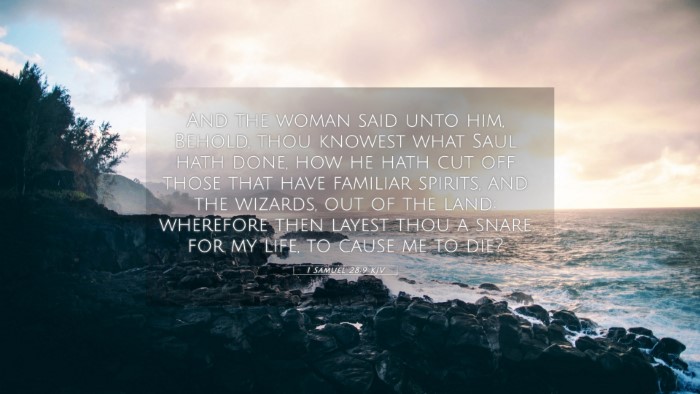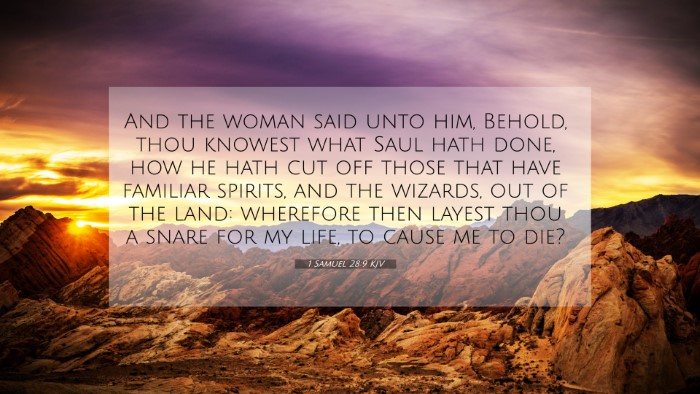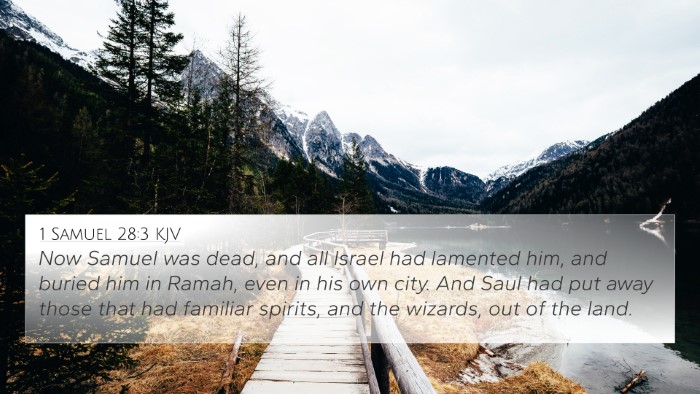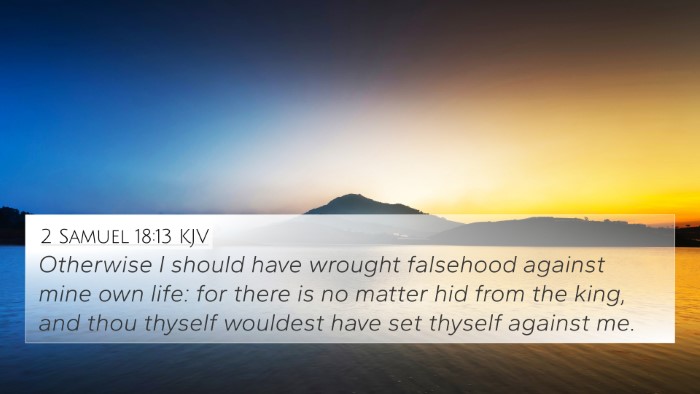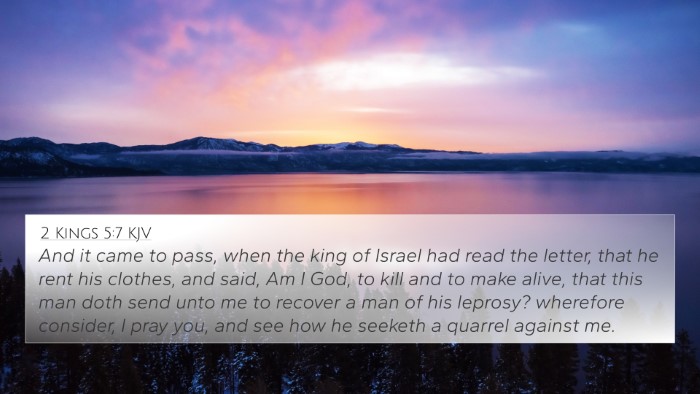Meaning and Interpretation of 1 Samuel 28:9
Verse: "And the woman said unto him, Behold, thou knowest what Saul hath done, how he hath cut off those that have familiar spirits, and the wizards, out of the land: wherefore then layest thou a snare for my life, to cause me to die?"
Contextual Background
The events surrounding 1 Samuel 28:9 take place during the latter days of King Saul's reign. Faced with impending battle and the absence of divine guidance, Saul seeks the counsel of a medium.
Commentary Insights
Matthew Henry
Henry emphasizes the gravity of Saul's choice to seek out a medium despite God's explicit commands against such practices. This act showcases Saul's desperation and spiritual decline. The woman's fear indicates her awareness of the dangers involved, highlighting the tension between her desire to help and the potential consequences.
Albert Barnes
Barnes notes that the woman’s response reveals her understanding of Saul’s previous actions against mediums and wizards. She perceives Saul's inquiry as a threat to her life, demonstrating the perilous position in which Saul has placed himself. Furthermore, Barnes explains that this encounter illustrates the moral decay in Israel’s leadership.
Adam Clarke
Clarke elaborates on the historical context, explaining how the prohibition against mediums reflects God's desire for His people to rely on Him rather than seek supernatural assistance through forbidden means. He highlights the irony in Saul's situation: the very act of seeking the dead leads him to further despair, rather than the guidance he seeks.
Thematic Connections
This verse serves as a critical reflection on the themes of divine authority, disobedience, and the struggle between faith and fear. The fear expressed by the medium serves as a reminder of the serious nature of engaging with the occult.
Bible Cross References
- 1 Chronicles 10:13-14: Highlights Saul's disobedience towards God and the consequences of seeking forbidden practices.
- Deuteronomy 18:10-12: Provides laws against practices like witchcraft, emphasizing God's stance on such sorcery.
- Isaiah 8:19: Discusses the outcome of seeking counsel from mediums instead of God, reinforcing the dangers of such choices.
- 1 Samuel 15:23: Explains that rebellion against God is akin to witchcraft, connecting Saul's actions to broader themes of defiance.
- 2 Kings 21:6: References the broader context of Israel's history with sorcery and mediums.
- Leviticus 20:27: Establishes the seriousness of consulting mediums and the prescribed punishment for such acts.
- Galatians 5:20: Mentions sorcery as a work of the flesh, linking New Testament admonitions back to Old Testament disclosures.
Connections Between Bible Verses
This passage not only stands on its own but also serves as a bridge to other scriptural teachings about faithfulness and the consequences of turning away from God's guidance.
Conclusion
In summary, 1 Samuel 28:9 is a poignant reminder of the importance of obedience to God and the dangers of seeking guidance outside of His will. The insights from the various commentaries highlight the multifaceted nature of this scripture, offering a rich ground for study and spiritual reflection.
Additional Resources
For those interested in further study, a Bible cross-reference guide may enhance understanding of how this verse interacts with other scriptures. Additionally, tools for Bible cross-referencing can help identify crucial connections between themes and narratives throughout the Bible.

